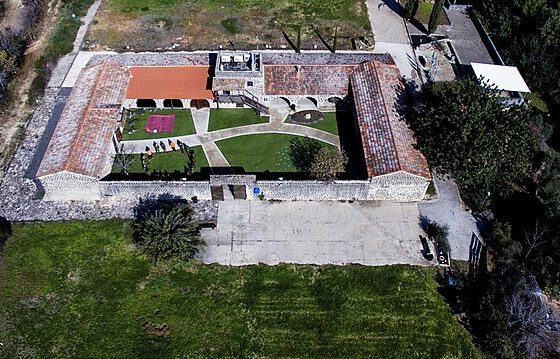America’s taxpayer-funded efforts to stabilize Haiti under President Joe Biden have failed to prevent the recent outbreak of violence and collapse of state capacity in the Caribbean nation.
The Biden administration, through a variety of agencies, has approved about $680 million in contracts and grants intended to fund operations that would bolster the Haitian government’s ability to tackle organized crime, provide healthcare to the country’s residents, support infrastructure and spur economic growth, federal spending records show. Despite hundreds of millions spent, gangs now run rampant in Haiti and have forced its prime minister to resign, controlling as much as 80% of the country’s capital city of Port Au Prince as of March 5, according to a United Nations estimate.
A coalition of gangs began laying siege to the nation’s capital on Feb. 29 as Haitian Prime Minister Ariel Henry was in Kenya drumming up support for a U.N.-backed operation that would deploy Kenyan police officers to Haiti in an effort to combat organized crime, CBS News reported.
Since violence escalated in Haiti on Feb. 29, Henry has been unable to reenter the country and has vowed to resign after a transitional presidential council is created, according to CBS News. One goal of the uprising was to pressure Henry into stepping down, according to gang coalition leader Jimmy “Barbecue” Cherizier.
A significant portion of the Biden administration’s Haitian contract and grant spending was concentrated on helping the fledgling state build capacity to combat these gangs, which have been a persistent problem in the country.
Gang activity has escalated since Jovenel Moïse, Haiti’s last president, was assassinated in 2021. Gang-related violence grew 122% between 2022 and 2023 in Haiti, according to the United Nations.
Henry has, with the backing of the United States, been operating as the de-facto president of Haiti since Moïse’s assassination.
The administration has approved about $46 million in spending since Biden took office on various grants and contracts aimed at making Haitian police forces more competent, records show. Less than a month into the recent gang uprising, Haitian police have effectively lost control of their capital city.
Specific goods and services paid for by the United States government on behalf of the Haitian police include training, uniforms, vehicles and assistance in combating the trafficking of illegal firearms and ammunition, spending records show.
The U.S. Department of Homeland Security found that, between 2021 and 2022, the number of illicit firearms entering Haiti surged, with “.50 caliber sniper rifles, .308 rifles and even belt-fed machine guns” entering the country.
Other initiatives the federal government spent tens of millions of dollars on in Haiti included, but were not limited to, HIV relief, economic development, unconditional cash transfers, food logistics improvements, childhood education and sanitation services, government spending records show.
U.S. agencies directing contracts and grants toward aiding Haiti include the State Department, the United States Agency for International Development (USAID), the Department of the Treasury, the Department of Health and Human Services (HHS), the U.S. Agency for Global Media and the Department of the Interior (DOI), according to spending records.
Haitian leaders have historically been scrutinized for failing to properly distribute foreign aid.
A 2014 UN report found that “the Haitian government is partially to blame for the failures of aid” as “local political leaders and elites have not facilitated the disbursement of aid, or, in some instances, have personally profited from it.”
“Haiti is controlled by political and economic elites who consistently place their individual interests above the country and its people,” the report reads.
Haitian gangs reportedly raided foreign aid shipments using firearms in August 2021 after the Caribbean nation was struck with a 7.2 magnitude earthquake, Business Insider reported.
Gangs raided the nation’s largest port and attempted to take over its primary airport, potentially complicating future aid delivery.
As the situation in Haiti intensifies, some American officials say the U.N.-backed Kenyan police operation is of heightened importance.
“If we don’t release the money so that the Kenyans can come in and do what they need to do, they are increasing the chance of the further migration problem to the United States,” Democratic New York Rep. Gregory Meeks told reporters on Tuesday.
Gangs have freed thousands of Haitian criminals from the nation’s prisons, CBS News reported.
The United States has pledged to spend $300 million backing the U.N.-backed Kenyan mission, with the State Department seeking to disburse $40 million of that shortly, according to Politico.
While some in the government are adamant that the funds should be released as soon as possible, top Republican lawmakers are hesitant.
“After years of discussions, repeated requests for information, and providing partial funding to help them plan, the administration only this afternoon sent us a rough plan to address this crisis. Whether it’s ‘credible and implementable’ remains to be seen,” Idaho Republican Sen. Jim Risch and Texas Republican Rep. Michael McCaul told Politico in a joint statement. “Given the long history of U.S. involvement in Haiti with few successful results, the administration owes Congress a lot more details in a more timely manner before it gets more funding.”
DOI, the U.S. Agency for Global Media, the State Department, the Inter-American Foundation, HHS, the Department of the Treasury and USAID did not immediately respond to the Daily Caller News Foundation’s requests for comment.
Robert Schmad on March 14, 2024
















